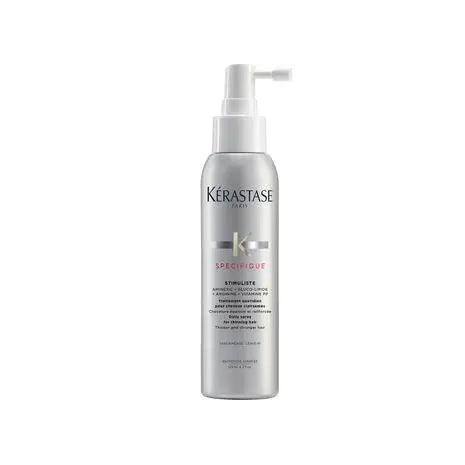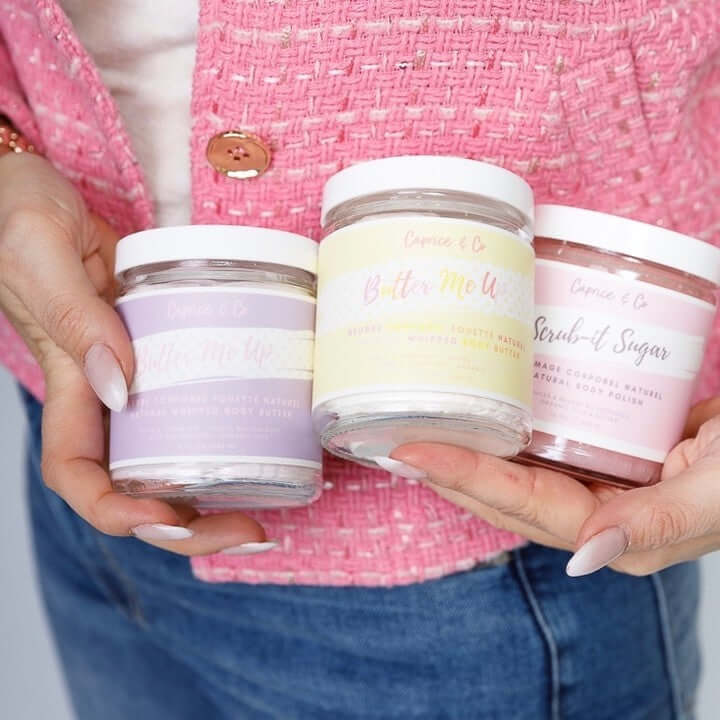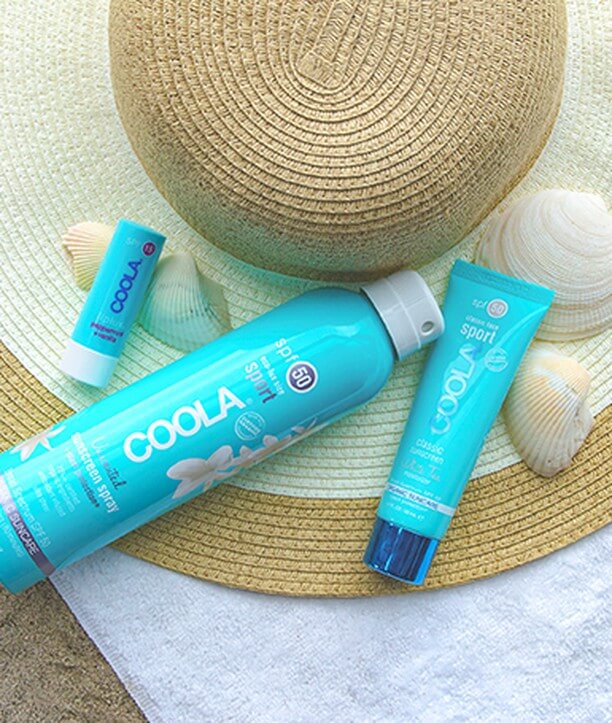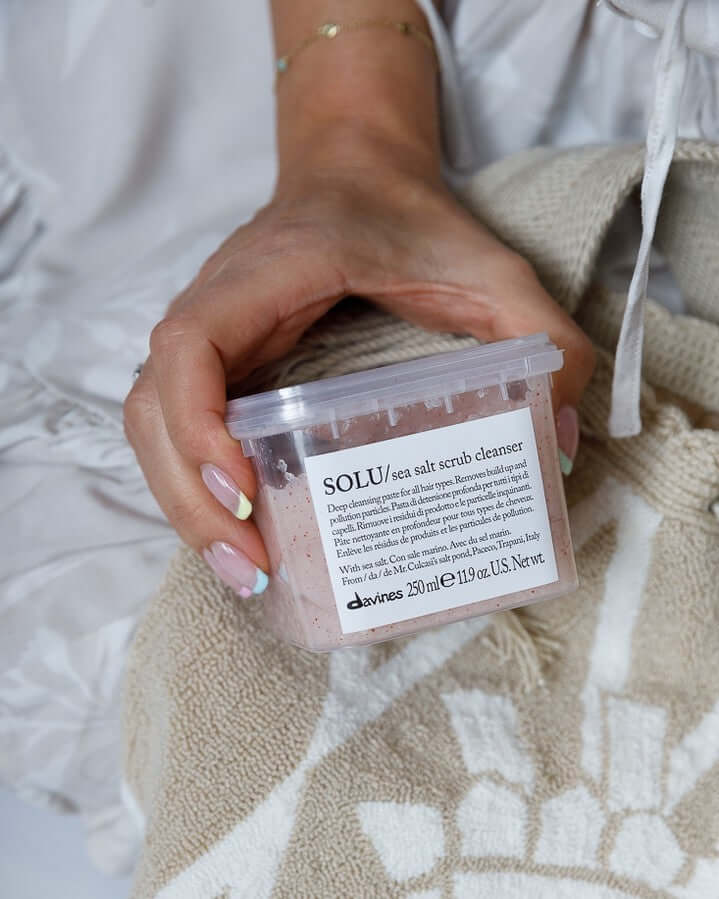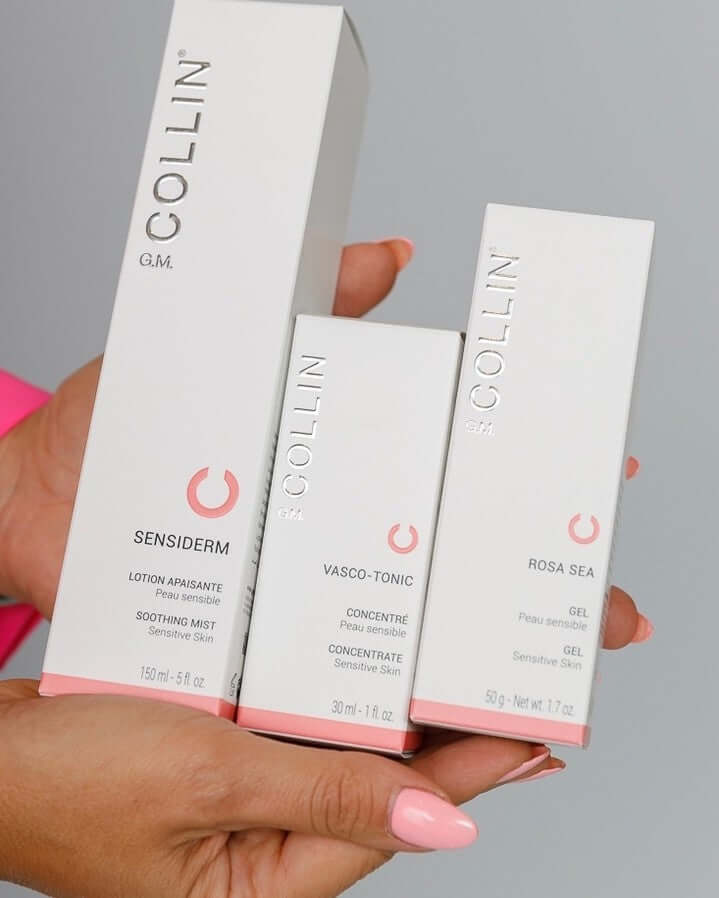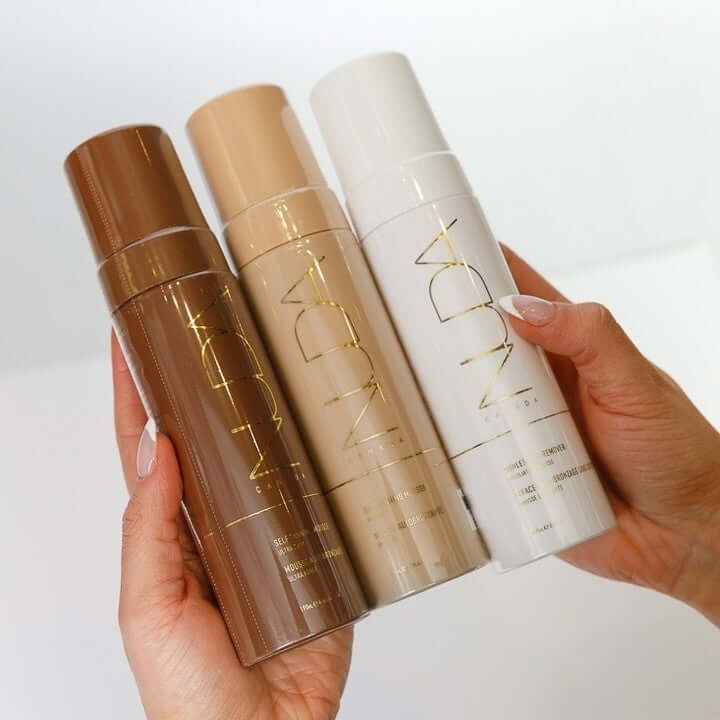How to Fix Dry Hair: Your Ultimate Guide to Restoring Moisture and Shine
Got dry hair? You're not alone. Lots of people deal with hair that feels brittle, looks dull, and just won't cooperate. This guide is here to help you figure out how to fix dry hair and get back that healthy, shiny look. We'll cover everything from what makes your hair dry in the first place to the best ways to treat it and keep it moisturized. Whether your hair is just a little thirsty or seriously parched, these tips will show you how to bring it back to life.
Key Takeaways
- Figure out why your hair is dry.
- Use gentle products that don't strip your hair.
- Protect your hair from heat and the environment.
- Eat well and drink enough water for hair health.
- Stick to a consistent hair care routine.
Understanding the Root Causes of Dry Hair
Okay, so you're dealing with dry hair. It's like straw, right? Brittle, no shine, and basically unmanageable. Before we jump into fixes, let's figure out why your hair is so thirsty in the first place. It's not always just about the products you use; sometimes, it's deeper than that. Recognizing these causes of dry hair is the first step.
Identifying the Signs of Dry Hair
Figuring out if you actually have dry hair seems obvious, but sometimes it's not as clear-cut as you think. It's more than just feeling a little rough. Here's what to look for:
- Brittle strands: Does your hair snap easily when you brush it? That's a big sign.
- Dull appearance: Healthy hair has a natural shine. Dry hair? Not so much. It looks kind of flat and lifeless.
- Rough texture: Run your fingers through your hair. Does it feel smooth, or kind of like straw? Roughness is a key indicator.
- Increased tangles: Dry hair tends to tangle way more easily than moisturized hair. It's like it's grabbing onto itself for dear life.
- Itchy scalp: A dry scalp often goes hand-in-hand with dry hair. If your scalp feels tight or itchy, that's another clue.
Environmental Factors Affecting Hair Moisture
Think about where you live and what your hair is exposed to daily. The environment plays a HUGE role in hair dryness. For example:
- Dry climates: Living in a desert? Your hair is constantly battling the lack of humidity.
- Cold weather: Winter is brutal. The cold air sucks moisture right out of your hair.
- Sun exposure: Just like your skin, your hair can get damaged by the sun. UV rays can dry it out and make it brittle.
- Hard water: The minerals in hard water can build up on your hair, making it feel dry and look dull. A clarifying shampoo can help with this.
I remember one winter where my hair was just a disaster. I was using all kinds of moisturizing products, but nothing seemed to work. Then I realized the dry winter air was the main culprit. I started using a humidifier in my bedroom, and it made a world of difference. Sometimes, it's the simple things!
Impact of Genetics on Hair Dryness
Yep, you can blame your parents for this one too! Sometimes, dry hair is just in your genes. Some people naturally produce less sebum (the natural oil that keeps your hair moisturized) than others. If your mom or dad has dry hair, chances are you might too. It's not a life sentence, though! You just have to be extra diligent about hair care practices and moisturizing treatments.
Adopting Healthy Hair Care Practices
It's not just about what products you use; how you treat your hair daily makes a huge difference, especially if you're dealing with dryness. Think of it as building a good foundation for healthy hair. Let's get into some practical tips that can really help.
Gentle Cleansing Techniques for Dry Hair
The way you wash your hair can either help or hurt your dryness situation. Harsh shampoos can strip away natural oils, making things worse. Instead, focus on gentle, sulfate-free options. When you're shampooing, massage your scalp gently to stimulate blood flow, but avoid scrubbing too hard, which can cause breakage. Also, don't wash your hair every single day. Try to stretch it out to every other day, or even every few days, to allow your natural oils to do their job.
- Use lukewarm water instead of hot water, which can dry out your hair.
- Concentrate shampoo on your scalp, letting it rinse through the ends.
- Always follow up with a hydrating conditioner, focusing on the mid-lengths and ends.
The Importance of Proper Hair Brushing
Brushing might seem simple, but doing it the right way is key. Use a wide-tooth comb or a brush with soft bristles to avoid pulling or breaking your hair. Start at the ends and gently work your way up to the roots to detangle. Avoid brushing your hair when it's soaking wet, as it's more prone to damage.
I switched to a boar bristle brush a while back, and it's been a game-changer. It helps distribute the natural oils from my scalp down the length of my hair, which keeps it moisturized and shiny. Plus, it feels really nice on my scalp!
- Brush your hair before showering to loosen tangles.
- Clean your brush regularly to remove buildup.
- Consider using a detangling spray to ease the process.
Minimizing Heat Styling Damage
Heat styling is a major culprit when it comes to dry hair. Blow dryers, straighteners, and curling irons can all suck the moisture right out of your strands. If you can, air dry your hair as often as possible. When you do use heat, always apply a heat protectant spray first. Also, try to use the lowest heat setting that still gets the job done.
Here's a quick guide to heat settings:
| Tool | Hair Type | Recommended Heat Setting |
|---|---|---|
| Blow Dryer | Fine/Thin | Low |
| Thick/Coarse | Medium | |
| Straightener | Fine/Damaged | Low |
| Normal/Healthy | Medium | |
| Curling Iron | Fine/Chemically Treated | Low |
| Thick/Resistant | Medium |
- Use heat styling tools sparingly.
- Deep condition your hair regularly to combat heat damage.
- Consider heatless styling methods like braids or buns.
Choosing the Right Products to Fix Dry Hair

It's true, genetics and the environment play a role in dry hair, but the products you use can make a HUGE difference. Choosing the right hair care products is a game-changer for combating dry hair. You need products designed for dry hair that restore moisture and vital nutrients. Let's break down how to choose wisely.
Selecting Sulfate-Free Shampoos and Conditioners
Sulfates are often found in shampoos because they create that foamy lather we associate with cleanliness. However, they can be really harsh, stripping your hair of its natural oils and leaving it even drier. That's why sulfate-free shampoos and conditioners are a must-have for dry hair. They cleanse gently while helping your hair retain its natural moisture. Look for shampoos that say "sulfate-free" right on the bottle. For example, the Food for Soft Hydrating Shampoo is a great option.
Benefits of Hydrating Hair Masks
Hydrating hair masks are like a spa treatment for your locks. They deliver a concentrated dose of moisture and nutrients, helping to repair damage and restore shine. Think of them as intense conditioners that you leave on for a longer period, allowing the ingredients to really penetrate the hair shaft. Here's why you should incorporate them into your routine:
- Deeply moisturize dry, brittle hair.
- Help repair damage from heat styling and chemical treatments.
- Improve hair's overall elasticity and shine.
Using a hair mask once or twice a week can make a noticeable difference in the health and hydration of your hair. Look for masks with ingredients like shea butter, argan oil, or hyaluronic acid.
Incorporating Leave-In Treatments
Leave-in treatments are your daily defense against dryness. They provide continuous hydration and protection throughout the day, helping to keep your hair soft, smooth, and manageable. They come in various forms, such as sprays, creams, and oils, so you can choose one that suits your hair type and preferences. Consider these benefits:
- Provide ongoing hydration.
- Detangle hair and reduce frizz.
- Protect against heat and environmental damage.
When choosing a leave-in treatment, look for ingredients like aloe vera and argan oil. These ingredients can help to hydrate and protect your hair. Also, consider the Bumble and Bumble Bond-Building Repair Treatment for weekly use.
Nourishing Your Hair from Within
It's easy to get caught up in external treatments, but what you put inside your body is just as important for healthy, hydrated hair. Think of it like watering a plant – you can mist the leaves all you want, but if the roots aren't getting enough water and nutrients, it's not going to thrive. A balanced diet and proper hydration are the cornerstones of hair health.
The Role of Diet in Hair Health
What you eat directly impacts the health of your hair. Deficiencies in certain vitamins and minerals can lead to dry, brittle hair that's prone to breakage. Make sure you're getting enough of these key nutrients:
- Protein: Hair is primarily made of keratin, a protein. Not enough protein can lead to hair loss and dryness.
- Iron: Iron deficiency (anemia) is a common cause of hair loss, especially in women. It also affects hair texture.
- Omega-3 Fatty Acids: These healthy fats help keep your scalp and hair moisturized. Find them in fish, flaxseeds, and walnuts.
- Vitamins A, C, and E: These vitamins act as antioxidants, protecting your hair from damage. They also support hair growth.
Eating a variety of fruits, vegetables, and lean proteins is the best way to ensure you're getting all the nutrients your hair needs. Consider consulting a registered dietitian or nutritionist for personalized dietary advice.
Staying Hydrated for Optimal Hair Moisture
Dehydration affects your entire body, including your hair. When you're not drinking enough water, your hair can become dry, brittle, and dull. Water helps transport nutrients to your hair follicles and keeps your scalp moisturized. Aim to drink at least eight glasses of water a day, and more if you're active or live in a hot climate. Remember, hydration is not just external. The Food for Soft collection was specifically built to gently cleanse and treat dry hair without any sulfates.
Supplements That Support Hair Vitality
While a healthy diet should be your primary focus, supplements can help fill in any nutritional gaps. Here are some supplements that are often recommended for hair health:
- Biotin: This B vitamin is often touted for its hair-strengthening benefits. While biotin deficiency is rare, supplementing with biotin may improve hair growth and thickness in some people. This hair supplement promotes faster, stronger hair growth and healthy skin and nails.
- Collagen: Collagen is a protein that supports skin elasticity and hair strength. Some studies suggest that collagen supplements can improve hair thickness and growth.
- Vitamin D: Vitamin D deficiency has been linked to hair loss. Supplementing with vitamin D may help improve hair growth, especially if you're deficient.
It's always a good idea to talk to your doctor before starting any new supplements, especially if you have any underlying health conditions or are taking medications. They can help you determine if supplements are right for you and recommend the appropriate dosage.
Advanced Treatments for Severely Dry Hair
Okay, so you've tried the basics, and your hair is still drier than the Sahara? It might be time to pull out the big guns. We're talking about treatments that go beyond your regular shampoo and conditioner. Think of these as rescue missions for your parched strands. Let's explore some options.
Professional Salon Treatments for Deep Hydration
Sometimes, what your hair really needs is a professional touch. Salons have access to products and techniques that you just can't replicate at home. I remember one time my hair was so fried from bleaching that it felt like straw. A salon treatment was the only thing that brought it back to life.
- Deep Conditioning Treatments: These are like supercharged conditioners. They use heat to help the product penetrate deeper into the hair shaft. They often contain keratin, proteins, and essential oils.
- Keratin Treatments: If frizz is a major issue, keratin treatments can be a game-changer. They smooth the hair and make it more manageable. Just be aware that they can be a bit pricey and require some maintenance. Keratin, a naturally found hair protein, is infused back into the hair to strengthen and smoothen.
- Hair Botox: Don't worry, it doesn't involve needles! Hair Botox fills in the gaps in the hair fiber, making it look fuller and healthier. It's a good option if your hair is damaged and thinning.
At-Home Remedies for Intense Moisture
If you're not ready to shell out for a salon treatment, there are still things you can do at home to give your hair a boost of moisture. These might take a little more time and effort, but they can be very effective. I've had good luck with DIY masks using ingredients I already have in my kitchen.
- Avocado Mask: Mash up an avocado and mix it with some olive oil or honey. Apply it to your hair and leave it on for 30 minutes before rinsing. Avocados are packed with healthy fats that can nourish and hydrate your hair.
- Coconut Oil Mask: Coconut oil is a classic for a reason. It penetrates the hair shaft and helps to lock in moisture. Just be careful not to use too much, or your hair will look greasy. Apply to your hair for pre-wash, and it’s always worked wonders.
- Honey Mask: Honey is a natural humectant, which means it attracts moisture. Mix it with some water or yogurt and apply it to your hair for 20 minutes before rinsing.
I've found that the key to successful at-home treatments is consistency. Don't expect to see results after just one use. Try to incorporate these remedies into your routine once or twice a week for the best results.
Understanding Hair Oils and Serums
Hair oils and serums can be a great way to add moisture and shine to your hair, but it's important to choose the right ones for your hair type. Some oils are better for thick, coarse hair, while others are better for fine, thin hair. I've made the mistake of using the wrong oil before, and my hair ended up looking like an oil slick.
Here's a quick guide:
| Oil/Serum | Best For | Benefits | and the best conditioner can fix dry hair.
- Argan Oil: This is a good all-around oil that can help to moisturize and protect your hair. It's also lightweight, so it won't weigh your hair down.
- Jojoba Oil: Jojoba oil is similar to the natural oils produced by your scalp, so it's easily absorbed. It can help to balance oil production and prevent dryness.
Remember, what works for one person might not work for another. It might take some experimentation to find the right combination of treatments and products for your hair. But don't give up! With a little patience and effort, you can restore moisture and shine to even the driest, most damaged hair.
Protecting Your Hair from Future Dryness

Okay, so you've nursed your dry hair back to health. Awesome! But the work doesn't stop there. It's all about keeping that moisture locked in and preventing future dryness from creeping back in. Think of it like protecting an investment – a little maintenance goes a long way.
Seasonal Hair Care Adjustments
Seasons change, and so should your hair care routine. What works in the humid summer might not cut it in the dry winter. For example:
- Winter: Add a hydrating hair mask once a week to combat dryness from indoor heating.
- Summer: Use a UV protectant spray to shield your hair from sun damage.
- Fall: Focus on repairing any damage from summer with deep conditioning treatments.
- Spring: Lighten up your products as the humidity increases.
Protecting Hair from Environmental Damage
Our environment can be brutal on our hair. Pollution, sun, wind – they all contribute to dryness and damage. Here's how to fight back:
- Wear a hat or scarf when spending extended periods outdoors. This is especially important in sunny or windy conditions.
- Use a clarifying shampoo occasionally to remove buildup from pollutants. Don't overdo it, though, as clarifying shampoos can be drying.
- Consider using a leave-in conditioner with UV protection.
Think of your hair like a plant. It needs protection from the elements to thrive. Just as you wouldn't leave a delicate plant exposed to harsh sunlight or freezing temperatures, you need to shield your hair from environmental stressors.
Maintaining a Consistent Moisture Routine
Consistency is key when it comes to keeping dry hair at bay. It's not enough to just use a hydrating mask once in a while. You need to establish a routine and stick with it. Here's a sample routine:
- Wash your hair with a sulfate-free shampoo every 2-3 days.
- Use a moisturizing conditioner after every wash.
- Apply a leave-in conditioner while your hair is still damp.
- Use a hair oil or serum to seal in moisture.
- Deep condition once a week.
| Product | Frequency | Purpose |
|---|---|---|
| Sulfate-Free Shampoo | 2-3 days | Gently cleanse without stripping moisture |
| Moisturizing Conditioner | Every wash | Replenish moisture after cleansing |
| Leave-In Conditioner | Every wash | Add extra hydration and protection |
| Hair Oil/Serum | As needed | Seal in moisture and add shine |
| Deep Conditioner | Once a week | Provide intense hydration |
Wrapping Things Up
So, there you have it! Getting rid of dry hair isn't some big secret. It's really about knowing what makes your hair dry in the first place and then sticking with a good routine. You've got to be patient, but if you keep at it with the right products and habits, your hair will start looking and feeling so much better. It's totally possible to get that soft, shiny hair back. Just keep trying these tips, and you'll see a difference.
Frequently Asked Questions
How can I tell if my hair is dry?
Dry hair often feels rough, looks dull, and can break easily. You might notice more frizz or that your hair doesn't bounce back like it used to. It might also be hard to style.
Can the weather make my hair dry?
Things like very dry or cold weather, too much sun, and even harsh winds can take moisture out of your hair. These environmental factors can make your hair feel dry and brittle.
Is dry hair something I can inherit?
Yes, sometimes your genes play a role. If your family tends to have dry hair, you might too. But even with genetics, there are many ways to help your hair stay hydrated.
What are some easy ways to care for dry hair at home?
Using gentle shampoos and conditioners, avoiding too much heat from styling tools, and brushing your hair carefully can make a big difference. Also, try not to wash your hair every day, as this can strip away its natural oils.
What kind of hair products should I use for dry hair?
Look for products that say "sulfate-free" or "hydrating." Ingredients like avocado oil, hyaluronic acid, and shea butter are great for adding moisture. Hair masks and leave-in conditioners are also very helpful.
Does what I eat affect my hair's dryness?
What you eat matters! A diet rich in healthy fats (like those found in avocados and nuts) and plenty of water can help keep your hair moisturized from the inside out. Sometimes, certain vitamins can also support hair health.
